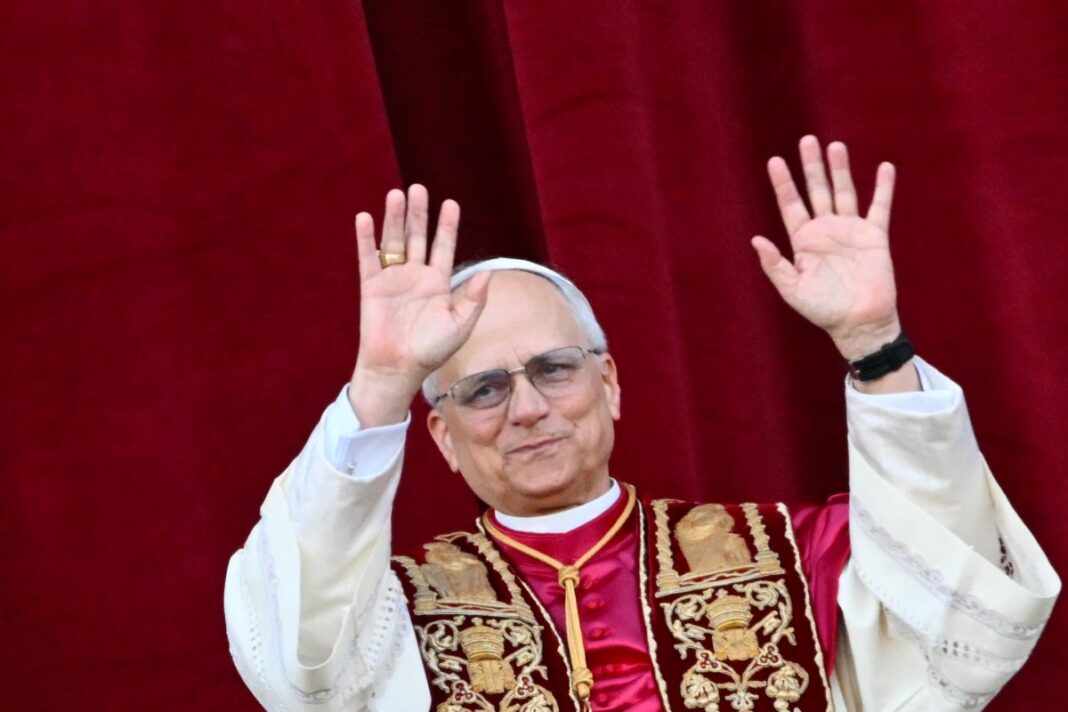In a moment of profound historical significance for the Roman Catholic Church, Cardinal Robert Francis Prevost has been elected as the new pope, becoming the 267th pontiff and the first American to ever ascend to the papacy. Taking the name Pope Leo XIV, his election marks a turning point in the Church’s global narrative, symbolizing a broader inclusivity and the deepening influence of the Americas in the worldwide Catholic community.
The decision was announced on May 8, 2025, after days of closed-door deliberations by the College of Cardinals in the Sistine Chapel, following the death of Pope Francis on April 21. As is tradition, the appearance of white smoke from the chapel’s chimney signaled the election of a new pope, prompting cheers from tens of thousands of pilgrims and faithful gathered in St. Peter’s Square. Shortly afterward, Cardinal Dominique Mamberti appeared on the central balcony of St. Peter’s Basilica and delivered the historic words: “Habemus Papam!” — “We have a pope!”
Cardinal Prevost, a native of Chicago, Illinois, now known to the world as Pope Leo XIV, brings with him decades of rich pastoral and administrative experience. At 69 years old, he is seen as a figure of continuity with the legacy of Pope Francis, particularly in his emphasis on synodality, pastoral reform, and a Church that listens to the people.
READ MORE: Mohamed Salah Wins Third Football Writers’ Player of the Year Award
Born on September 14, 1955, Robert Francis Prevost joined the Order of St. Augustine in 1977, dedicating his life to service, education, and missionary work. After completing his undergraduate studies at Villanova University, he pursued theological and canonical studies at the Catholic Theological Union in Chicago and later at the Pontifical University of St. Thomas Aquinas (Angelicum) in Rome.
His deep commitment to missionary service led him to Peru in 1985, where he spent over two decades in pastoral ministry. There, he served in rural parishes, taught in seminaries, and helped build religious education programs. His extensive experience in Latin America profoundly shaped his understanding of social justice, community engagement, and the challenges facing the global South.
From 2001 to 2013, Prevost served as the Prior General of the Augustinian Order, based in Rome. During his 12-year leadership, he guided the order through a time of global expansion and renewal, establishing missions in Africa, Asia, and Latin America. In 2014, he returned to Peru to serve as the Bishop of Chiclayo, where he became widely known for his hands-on approach to ministry and his ability to connect with ordinary people.
Recognizing his leadership abilities, Pope Francis appointed Prevost in 2023 as Prefect of the Dicastery for Bishops, the influential Vatican office responsible for recommending bishop appointments around the world. In this role, he played a crucial part in shaping the next generation of Church leadership. He also served as President of the Pontifical Commission for Latin America, further reflecting his global reach and commitment to a Church with a strong presence in the developing world.

By choosing the name Leo XIV, Pope Prevost aligns himself with the spirit of Pope Leo XIII (1878–1903), a pontiff known for championing social justice and the dignity of labor, most notably through the encyclical Rerum Novarum. The choice signals Pope Leo XIV’s intention to lead a Church deeply engaged with the challenges of the modern world — from economic inequality and migration to secularism and climate change.
In his first public address from the balcony of St. Peter’s Basilica, Pope Leo XIV offered a message of unity and peace. “Evil will not prevail,” he said, invoking both spiritual resilience and a call for healing amid global division. His words were met with rapturous applause and emotional scenes in the square.
His election has sparked worldwide reactions, particularly in the United States, where American Catholics have long played a vital role in Church life but never before seen one of their own rise to the papacy. Leaders from across the political and religious spectrum have praised the election as a milestone not just for Americans but for Catholics worldwide, especially those in regions where the Church has often been seen as Eurocentric.
Pope Leo XIV is expected to carry forward many of the themes emphasized by his predecessor, Pope Francis, including synodality, ecological stewardship, interfaith dialogue, and the inclusion of marginalized communities. His background in Latin America and familiarity with North American and European Church structures uniquely positions him to bridge the divides within Catholicism and respond to its global challenges with empathy and authority.
The Vatican has announced that the Mass of Papal Inauguration will take place in the coming weeks, likely drawing millions to Rome and around the world to witness the beginning of this new chapter. As Pope Leo XIV begins his ministry, many faithful are hopeful that his leadership will bring renewed vitality and direction to a Church at a crossroads in its long and storied history.




